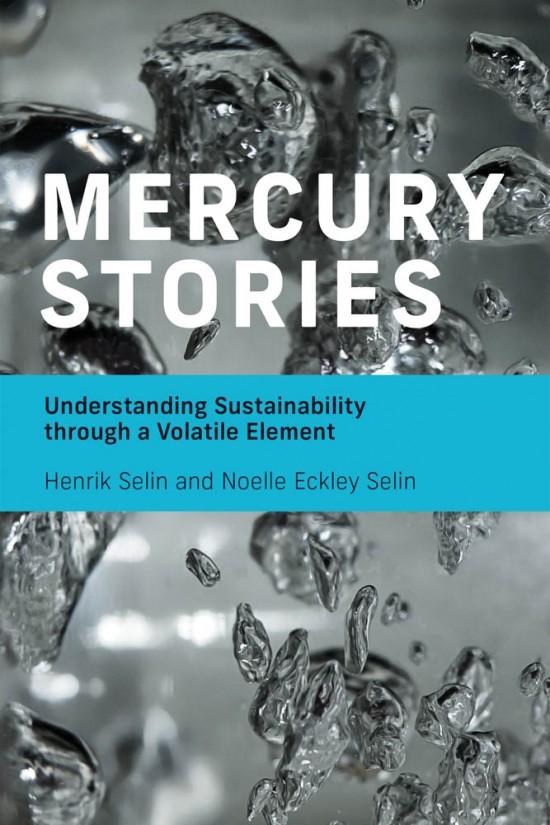New MIT PRESS book explores volatile element mercury

Credit: The MIT PRESS, 2020.
In “Mercury Stories,” Henrik Selin and Noelle Eckley Selin examine sustainability through analyzing human interactions with mercury over thousands of years. They explore how people have made beneficial use of this volatile element, how they have been harmed by its toxic properties, and how they have tried to protect themselves and the environment from its damaging effects. Taking a systems approach, they develop and apply an analytical framework that can inform other efforts to evaluate and promote sustainability.
After introducing the framework, which uses the lens of a human-technical environmental system and a matrix-based approach to analyze mercury use and exposure, the authors examine five topical mercury systems that each illustrate important issues in mercury science and governance: global cycling of mercury through the atmosphere, land, oceans, and societies; mercury’s dangers to human health, including from occupational, medical, and dietary exposure; mercury emissions to the atmosphere from industrial sources; mercury in commercial products and production processes; and mercury use in artisanal and small-scale gold mining. Finally, looking across the five mercury systems, they distill insights for sustainability analysis more broadly, and draw lessons for researchers, decision-makers, and concerned citizens.
###
About the authors:
Henrik Selin is Associate Professor of International Relations at the Frederick S. Pardee School of Global Studies at Boston University. He is the author of “Global Governance of Hazardous Chemicals” (MIT Press).
Noelle Eckley Selin is Associate Professor in the Institute for Data, Systems, and Society and the Department of Earth, Atmospheric, and Planetary Sciences at MIT. Her research focuses on the environmental transport and fate of mercury and other chemicals.
The book has received great advance praise including the following:
“With a uniquely historical perspective and richly detailed case studies, Mercury Stories offers a new approach for systematically thinking through every element of sustainability as a human, technical, and environmental matter.”
–Harriet Bulkeley, Professor, Durham University and Utrecht University
“Mercury Stories presents a conceptually novel, operationally useful systems framework for analyzing complex interactions among technology, society, and nature, showing how attention to knowledge and institutions can help manage such interactions in pursuit of sustainability.”
–William C. Clark, Harvey Brooks Professor of International Science, Public Policy, and Human Development; Director, Sustainability Science Program, John F. Kennedy School of Government, Harvard University
“Mercury Stories offers a valuable contribution to sustainability science by employing a systems perspective to analyze humanity’s complex interrelationship with mercury. The book illuminates how mercury pollution led to a regulatory revolution in 1970s Japan and ultimately the world through the Minamata Convention.”
–Kazuhiko Takeuchi, President, Institute for Global Environmental Strategies
Media Contact
Nicholas DiSabatino
[email protected]




